
You are reading:

You are reading:
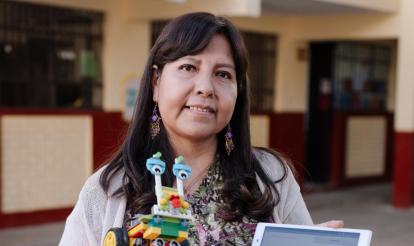
“Those who do not develop computational thinking are going to be illiterate,” warns María Teresa Cornejo, a teacher in the ProFuturo programme in Arequipa, Peru. This project of the Telefónica Foundation and the ”la Caixa” Foundation puts technology at the service of society to reduce the education gap in underprivileged areas in Latin America, the Caribbean, Africa and Asia. “I want to prepare my students to be able to respond to the challenges the future presents them,” says this teacher of pedagogical innovation.
María Teresa Cornejo wakes up every morning with a mission: to enhance the digital and technological education of her students. As a teacher of pedagogical innovation at the República de Venezuela school in Arequipa, Peru, she remembers exactly what motivated her to start training in new technologies: “I saw a boy in a webinar who had created a digital application to help blind people. I was so impressed that I thought, ‘Why can’t the students at my school do that?’”
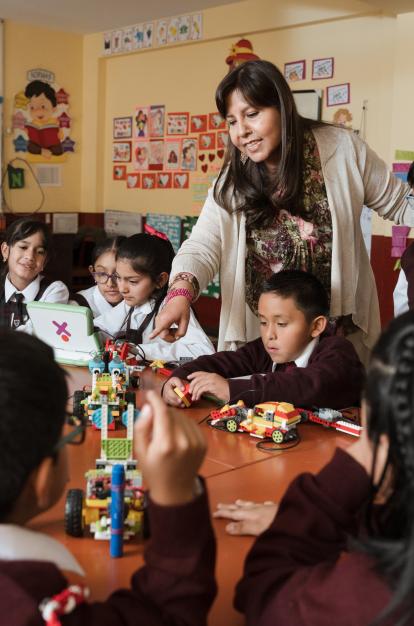
Cornejo is a teacher at ProFuturo, a programme promoted by the Telefónica Foundation and the ”la Caixa” Foundation that seeks to reduce the education gap in the world by providing quality digital education to children living in underprivileged areas and implementing educational innovation projects through technology. Since its inception in 2016, ProFuturo has trained thousands of teachers and millions of students and is currently present in 39 countries in Latin America, the Caribbean, Africa and Asia. In 2023 alone, it conducted the training of 342,000 teachers, who in turn strengthened the digital skills of 1.2 million children in more than 5,000 schools.
The platform provided Cornejo with the basis for understanding the basicconcepts of digital education and spurred her on to further research. “It made me realise that rather than teaching students robotics, electronics or artificial intelligence, you have to develop their computational thinking as an indispensable skill in education, but also as individuals,” she says.
The daughter of a family of teachers, Cornejo grew up sharing her parents’ passion for education, with a special sensitivity for underprivileged children. “When I arrived at my school, the computer room wasn’t used, it was closed. All we did was watch videos on the projectors and there was a certain fear and insecurity about using the equipment in case we damaged it. My school is located in the city centre, near the cultural core, but it had many shortcomings. In many ways, it was worse than a rural school,” she says. That was until, after joining the ProFuturo programme, the first tools arrived: software and a trolley with a portable server, several tablets and a projector. They called it “the mobile classroom”.
“Since then, ProFuturo has been the backbone of my work. And my school, despite its precariousness and small size, has been selected as a National Outstanding School,” she adds proudly. Thanks to this support, Cornejo has received digital educational resources, as well as new training for teachers and practical learning in innovative methodologies to apply to her teaching. As an outstanding teacher, she keeps in touch with other education experts through meetings where they share experiences and enrich their common endeavour.
“We try to raise the level of our students so that they can overcome the gaps that exist between state schools. We use technology to help students learn the different areas of education in a holistic way, but we also use it ourselves to train, generate knowledge and resources and be productive as teachers,” she says.
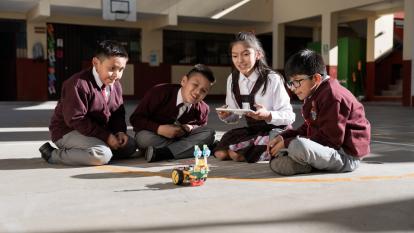
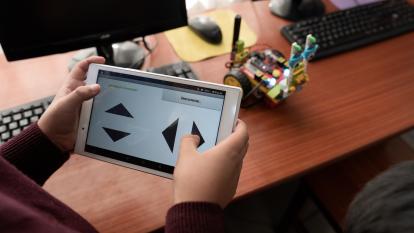
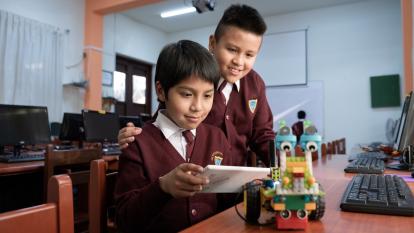
Building on all this learning, the educator has developed a proposal aimed at the digital transformation of primary education, something she has applied to the school where she works, which consists of 12 classrooms with six primary grades and around 250 students. “My proposal aims to develop computational, critical and creative thinking through the activities we carry out. If, traditionally and still today, reading comprehension and logical thinking determine a person’s success, those who do not develop their computational thinking today are going to be illiterate because they won’t understand how these technologies work. We want students to become producers and not just consumers.”
Cornejo is optimistic. “The risks are quite high, but I want to prepare students to be able to respond to the challenges the future presents them and to solve problematic situations that have not yet arisen. We don’t know what new jobs will emerge in the future, but we’re seeing that some are already becoming obsolete, while other technology-related activities are gaining ground,” she says.
Another important aspect for both ProFuturo and the teacher is to work towards gender equality, a discriminatory factor that is still very present and which Cornejo has experienced firsthand at certain times in her life. “In general, the decision-makers are men. For me personally, it was very difficult at first. I had to do a lot of preparation and then set up a project that would allow me, with a vision of the future, to map out where I wanted to go. With that empowerment and large doses of assertiveness, I’ve managed to implement my projects, but I still feel that women, when we have to give a talk, for example, we do so more as support and face obstacles to having the floor and exerting direct influence.”
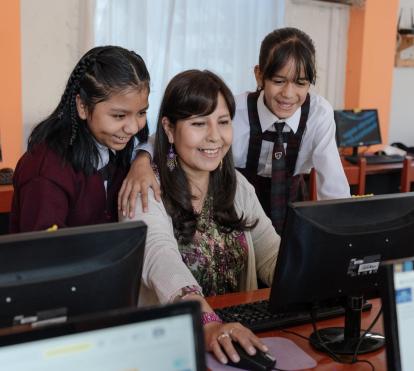
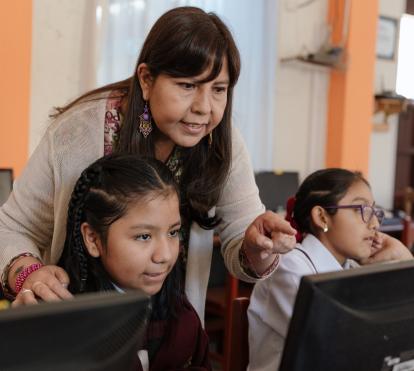
Cornejo advocates promoting the training of female talent. “Technology is defining the future of society and it’s essential that girls can develop skills, vocations and stimuli that allow them to opt for careers in science. This will allow them to sit at the technology table and discuss the future of humanity,” she argues. “In a world with so much violence, where human beings seem to have less and less humanity, educating ourselves in a proper digital culture will determine whether we can guarantee a better, fairer and more equitable society for all.”
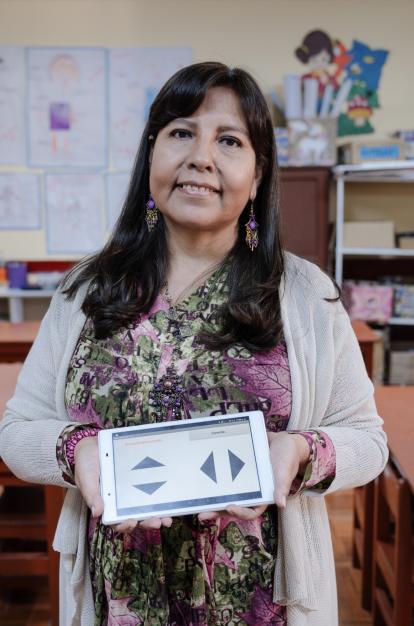
In the midst of all this, she comments: “ProFuturo is really like a scaffold for everything we do.” Thanks to the support she has received, she feels completely empowered. “For example, when they saw the proposal I was working on, they gave us eight Microbit cards so that the students could download the programs they’d created onto a platform, install them physically and check how they worked. Now they can see that what they create materialises into something real.”
Her proposal for digital transformation in the classroom had already been tested in her school during the previous academic year, with positive results. “I’ve observed that my students now have high levels of abstraction and a great capacity to solve problems in a systematised way, and they’ve been able to develop collaborative work, creative thinking, autonomy and the idea of digital citizenship,” she says. “They’re aware that artificial intelligence, for example, can do a lot of harm, but if it’s in the hands of a human being who thinks of others and wants to make society and the world a better place, that risk diminishes.”
Cornejo, who has used her school as a laboratory and in this new stage of the project has introduced the training of artificial intelligence models with machine learning, does not rule out applying her system to other areas of Peru: “I’m validating the proposal in phases, which are like milestones in this dream. In the future, I’d like to implement it in other schools and, if the results are equally satisfactory, we’ll see how far we can go.”